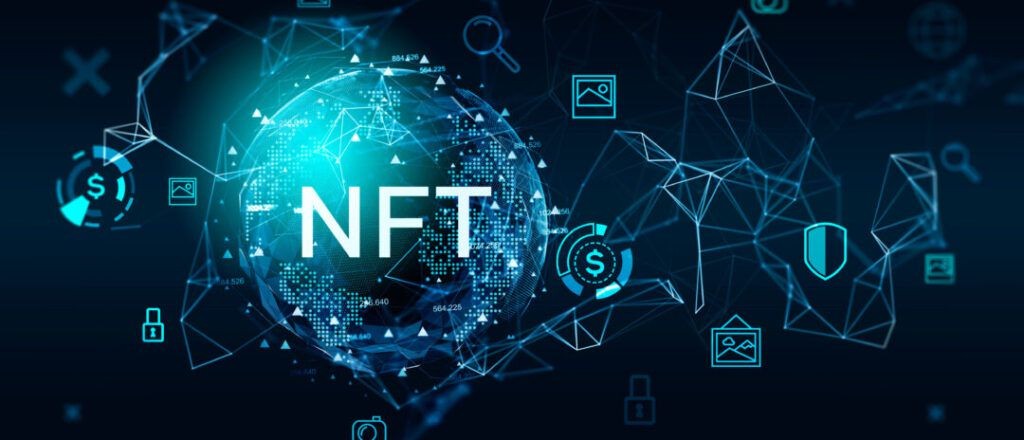
Introduction to NFTs in the B2B Landscape –
Non-Fungible Tokens (NFTs) are often associated with art, collectibles, and Web3 hype—but beneath the surface, they hold serious potential for B2B industries. At their core, NFTs are digital assets with unique identifiers that are stored on a blockchain, proving ownership, authenticity, and provenance. In the consumer world, NFTs have fueled digital art sales and fan engagement. In B2B, these same features can be harnessed for entirely different use cases—think certification, digital access, loyalty, and secure records. As more businesses move toward digitally-native transactions, NFTs may become a practical tool for managing trust, transparency, and engagement across business ecosystems.
Unlike cryptocurrencies, NFTs are not interchangeable. Each token carries specific data that cannot be altered, which makes them ideal for documenting credentials, managing access rights, or powering digital reward systems. This blog explores how NFTs can go beyond buzzwords and unlock value in real B2B environments—particularly in manufacturing, software, education, and enterprise services.
Key ideas at this stage include:
- NFTs store secure, unalterable records of ownership or status
- They can be used for both tangible and intangible assets
- Smart contracts can automate updates, transfers, and validations
- The blockchain backbone adds trust and visibility for all parties
NFTs as Digital Certificates and Credentials –
One of the most immediate and practical B2B uses of NFTs is in certification and credentialing. Businesses constantly issue and verify qualifications—be it employee training, machine compliance, ISO standards, or third-party audits. Traditionally, these documents are stored in PDFs or printed formats, which are easy to forge or lose. NFTs provide a secure, tamper-proof way to store and display these credentials on the blockchain, making verification instant and transparent.
This is particularly useful in industries like manufacturing, logistics, education, and cybersecurity, where compliance and verified skills are critical. With NFTs, a certification becomes a verifiable digital asset that can be accessed globally and updated automatically through smart contracts when recertification occurs. It ensures that qualifications are authentic, portable, and up-to-date—reducing paperwork and fraud.
Use cases in certification include:
- Digital training certificates for employees or contractors
- Product compliance or quality certifications issued as NFTs
- Proof of attendance for B2B webinars, courses, or trade shows
- Supply chain verification for ethical or regulated sourcing
Loyalty Programs Reinvented With Web3 –
Traditional B2B loyalty programs often struggle to keep customers engaged over long cycles. Point-based systems or discounts are common, but they can be impersonal and hard to scale. NFTs allow for deeper, more personalized loyalty programs that provide ongoing value and engagement. Businesses can issue NFT-based loyalty tokens to clients, partners, or resellers that represent status tiers, exclusive perks, or even tradable benefits.
These tokens are not just passive—they can evolve over time, unlocking new levels of rewards or access based on customer actions. For example, a logistics partner who maintains 99% on-time delivery for six months might earn a gold-tier NFT that unlocks better contract terms or priority support. The ability to track, verify, and reward loyalty transparently makes NFTs a smart addition to B2B customer retention strategies.
Loyalty-focused applications include:
- Tiered status NFTs for clients or vendors with long-term contracts
- Tokens redeemable for exclusive services, consulting hours, or upgrades
- Performance-based badges for partners or suppliers
- Limited edition rewards for early product adopters or pilot testers
Gated Access to Resources, Events, and Tools –
NFTs can also serve as digital access passes, granting holders entry to restricted services, premium content, private tools, or live events. For B2B companies that offer membership-based products, software subscriptions, or gated content libraries, NFTs enable secure and programmable access control.
A company might issue NFTs as access passes to exclusive webinars, product roadmaps, beta programs, or private community forums. Unlike passwords or subscription logins, NFTs are much harder to share or duplicate—and they can be easily transferred or revoked. In Web3-native business models, this also opens up the possibility of secondary markets where unused access rights can be resold or reassigned.
NFTs as access tools can include:
- Digital event passes for invite-only B2B conferences
- Access tokens to private beta software or testing sandboxes
- Content NFTs that unlock proprietary research, reports, or playbooks
- Smart contracts tied to NFT usage terms or time limits
Transparency and Trust in Supply Chains –
Supply chains in manufacturing, agriculture, and pharmaceuticals require end-to-end traceability, and NFTs can enhance this by tokenizing individual components or products. Each item can have a unique NFT that tracks its origin, manufacturing process, compliance records, and ownership across the supply chain. This ensures visibility, accountability, and fraud prevention—especially in industries with complex, global networks.
By pairing NFTs with IoT and QR codes, businesses can provide stakeholders with real-time traceability of every part of their supply process. This is critical for sustainability reporting, regulatory audits, and quality assurance. The blockchain-based nature of NFTs also allows all stakeholders to validate a product’s history without relying on centralized systems that can be manipulated or lost.
Supply chain use cases for NFTs include:
- Authenticity tracking for high-value equipment or parts
- Proof of origin for sustainability claims (e.g., fair-trade sourcing)
- Digital passports for machines with service history logs
- Asset management of leased or shared industrial equipment
Conclusion –
While NFTs began in consumer markets, their underlying technology is now being quietly adopted in serious, utility-driven ways across B2B industries. From credentialing and loyalty to gated access and supply chain transparency, NFTs offer a flexible framework for building trusted, automated, and secure digital experiences. The key to success lies in focusing less on the “token” itself and more on the business logic behind it—how it automates workflows, validates information, or enhances relationships.
As B2B commerce becomes more digital, distributed, and data-driven, NFTs may become not just useful—but essential. Early adopters who integrate these tools now can position themselves at the forefront of the next wave of business innovation.

